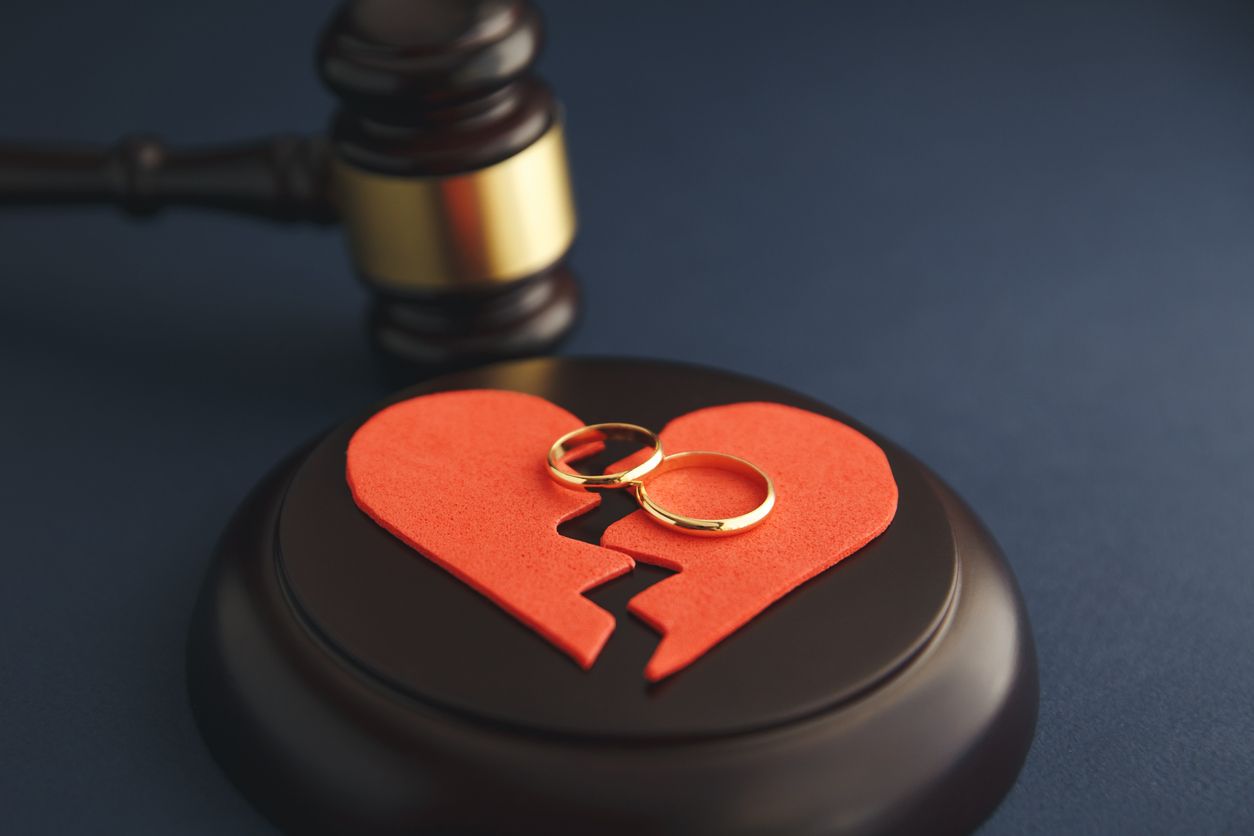Arons & Solomon Divorce Lawyers | March 6, 2022 | Divorce in Hackensack, NJ

As with many aspects of our lives, COVID-19 changed how the courts handled divorce proceedings in New Jersey. Initially, the divorce process in New Jersey slowed because of the pandemic, but it did not take long for the courts and attorneys to find ways to work around pandemic safety policies.
The pandemic had the most significant impact on trials within the judicial system, especially jury trials. However, since judges hear divorce cases without a jury present, many divorce cases continued via virtual hearings when courthouses could not open. Motions, settlement conferences, and hearings were held virtually.
Even though e-filing was not available for family court filings before COVID-19, an electronic system was implemented for family court. As a result, family lawyers could file documents electronically instead of hand-delivering or mailing them.
Email correspondence became widely used instead of paper. It was a change many family law attorneys eagerly embraced. In many instances, it was easier to conduct business virtually.
Divorce Proceedings During the COVID Pandemic
Parties seeking an uncontested divorce during COVID-19 did not notice a difference in the process. The parties in an uncontested divorce agree on all issues related to the divorce. A hearing is not necessary to argue about child custody, spousal support, or property division.
Instead of appearing in court, the parties submitted a settlement agreement to the judge. The courts handled uncontested divorces solely through filings. The process was faster and more convenient for all parties involved.
The court handled some uncontested divorces that required a hearing virtually. The parties appeared by Zoom or other electronic communications.
Contested divorces were more challenging to handle through virtual means, especially if they involved multiple witnesses and experts. However, the court found ways to handle those cases as quickly and efficiently as possible.
There were some delays because of court closings, limited hours, and fewer court staff members. However, the overall divorce process in New Jersey during the height of the COVID pandemic did not change very much. Court personnel and Bergen County divorce lawyers worked together to finalize divorce cases despite the challenges imposed by a global pandemic.
Have Bergen County Family Courts Reopened?
All state courthouses are now open to the public. Appointments are not necessary to enter a courthouse. Many judges and staff work on-site. However, some aspects of the divorce process continue to be handled online and through virtual hearings.
Although some matters continue to be conducted virtually, the courts currently hold more in-person hearings. The courts continue to update their COVID-19 policies. You should check with your divorce lawyer about the current policies for Bergen County family courts.
Using Alternative Dispute Resolution to Settle Divorce Matters
Before the COVID-19 pandemic, parties used alternative dispute resolution (ADR) to settle divorce matters. Mediation is a common form of ADR used in divorce cases.
A neutral mediator facilitates settlement discussions between the spouses and their attorneys. The mediator does not make decisions, but can help parties identify issues and address disputes in a non-adversarial manner. Mediation is effective when both parties desire to reach an agreement that works best for all parties.
Divorce cases involving greater levels of contention among the spouses may require a different form of ADR. Arbitration allows both parties to present their evidence to a neutral arbitrator. The arbitrator issues a binding decision, much like a judge.
Arbitration is generally less costly and quicker than going through a trial. In addition, parties have more flexibility in scheduling meetings. Arbitration also offers more privacy and a greater ability for parties to resolve disputed divorce matters without going to court.
What is the Process for Divorce in Bergen County, New Jersey?
COVID-19 may have changed access to the courts, but it did not change the divorce laws in New Jersey. As a result, the divorce process remained the same throughout the pandemic.
Either spouse in New Jersey may petition the court for divorce by filing a Complaint for Divorce. The spouse filing for divorce must serve the complaint on their spouse within 30 days of the filing date. The defendant spouse has 35 days to respond to the divorce complaint.
In an uncontested divorce, the parties may submit a settlement agreement to the court. Before COVID-19, uncontested divorces could take around six months to complete when the parties had been married less than six months or separated for at least a year and a half. The timeline is about the same now.
Contested divorces can take more than a year to resolve. It depends on the issues involved and the parties’ willingness to resolve property division, child support, spousal support, and other issues. Divorce lawyers continue to work with clients to obtain divorces in Bergen County as quickly as possible.
Because each situation is unique, the timeline for a divorce is unique. The best way to determine how long it will take to complete your divorce and the best divorce process for your situation is to talk with a Bergen County divorce lawyer. An attorney assesses your situation to provide legal advice and guidance.
Contact the Bergen County Family and Divorce Law Firm of Arons & Solomon Divorce Lawyers for more help
Contact the experienced family attorneys at Arons & Solomon Divorce Lawyers today for legal assistance. Visit our law office in Bergen County or give us a call at (201) 487-1199 to schedule a free consultation with our team.
Bergen County Law Office
1 University Plaza Dr #400, Hackensack, NJ 07601, United States
